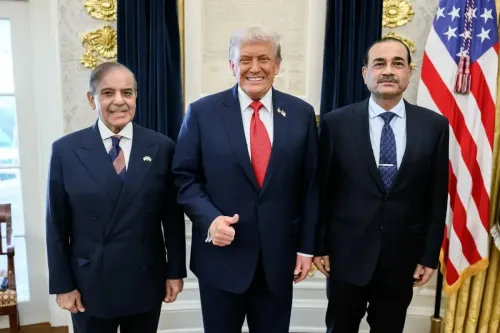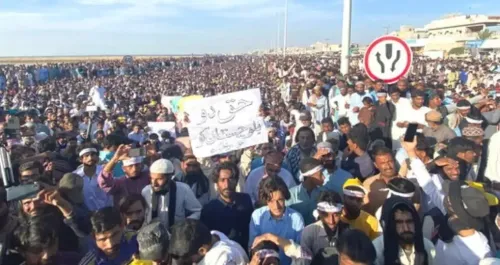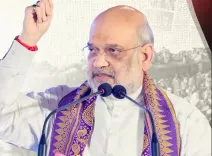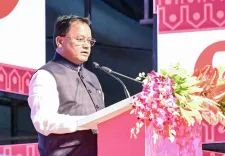Is the Pakistani military exporting fear to stifle dissent?
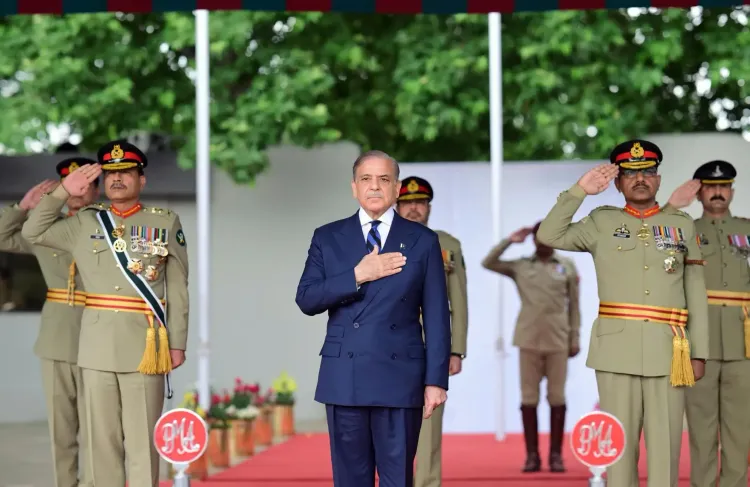
Synopsis
Key Takeaways
- Exporting fear: The Pakistani military's strategy targets dissent both at home and abroad.
- Journalists at risk: Cases like Arshad Sharif's murder highlight the dangers faced by media professionals.
- Political repression: Activists associated with the PTI face harassment and intimidation.
- International condemnation: Human rights organizations are raising alarms about state-sponsored repression.
- Future uncertainty: The right to dissent is increasingly under threat in Pakistan.
Islamabad, Oct 10 (NationPress) Under the leadership of Army Chief Asim Munir, Pakistan has adopted a strategy of instilling fear that leads to the silencing or killing of journalists, harassment of political party members abroad, punishment of families domestically, and unchallenged threats from generals overseas, as highlighted in a recent report.
The document indicates that what began as a campaign of censorship against local journalists has transformed into a comprehensive system of transnational repression aimed at entire political factions.
According to findings from European Times, the escalation of transnational repression in Pakistan has surged under Munir due to the overwhelming power he has amassed.
“In the past three years since Munir took charge as Army Chief, the state's oppressive tactics have extended well beyond the borders of Pakistan, targeting journalists, activists, and notably, political dissidents in the diaspora. What was once unimaginable—Pakistani authorities intimidating citizens in various countries—has become a commonplace occurrence. The message is unmistakable: any critique of the military, whether from Karachi or New York, will not be accepted, and repercussions can arise anywhere,” the report elaborated.
It emphasized that journalists are the most visible victims of this approach, as their cases illustrate Pakistan's extensive reach internationally. The report recalled the tragic incident in October 2022, when senior television journalist Arshad Sharif, who had escaped sedition accusations and military threats, was murdered in Kenya. Despite subsequent Kenyan court rulings deeming his death unlawful, justice remains elusive amid lingering questions regarding the Pakistani military's involvement.
“In March 2025, investigative journalist Ahmad Noorani released a report detailing Munir's growing influence; shortly afterwards, his brothers in Islamabad were abducted, and a colleague in Balochistan went missing. Following these events, his YouTube channel was blocked in Pakistan under the guise of a cybercrime investigation. These incidents have drawn international condemnation as stark examples of extraterritorial oppression. They send a clear signal that dissent abroad is as perilous as dissent within Pakistan,” the report stated.
Nevertheless, the report indicated that the initial focus on journalists has rapidly expanded to include political operatives, particularly those associated with Imran Khan and the Pakistan Tehreek-e-Insaf (PTI).
“In 2025, PTI protests outside Pakistani diplomatic missions in London, Toronto, and Washington faced not only local police resistance but also evident surveillance by embassy personnel and entities connected to Pakistani intelligence. Demonstrators reported receiving menacing phone calls, and their relatives in Pakistan were interrogated by security forces,” it added.
The report asserted that human rights organizations are increasingly voicing alarms over state-sponsored repression in Pakistan. The US-based advocacy group Committee to Protect Journalists characterized the 2025 incidents involving exiled reporters as “a significant escalation in Pakistan’s crackdown.”
“Pakistan has descended into a reality where dissent is untenable both domestically and internationally. The outlook for Pakistan is bleak, with the military's influence shadowing citizens everywhere and the freedom to express oneself extinguished both at home and abroad,” the report concluded.



